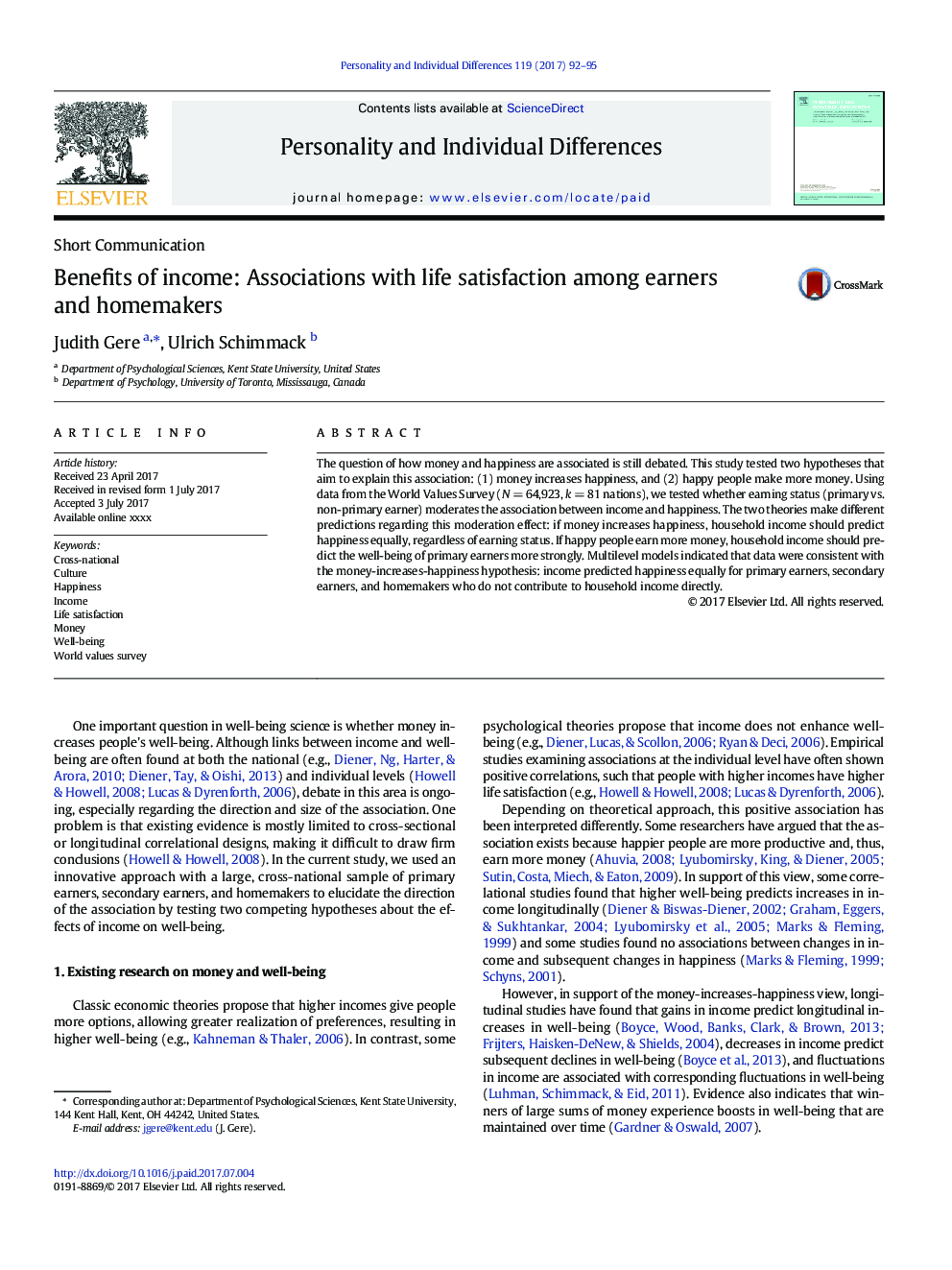| Article ID | Journal | Published Year | Pages | File Type |
|---|---|---|---|---|
| 5035695 | Personality and Individual Differences | 2017 | 4 Pages |
Abstract
The question of how money and happiness are associated is still debated. This study tested two hypotheses that aim to explain this association: (1) money increases happiness, and (2) happy people make more money. Using data from the World Values Survey (N = 64,923, k = 81 nations), we tested whether earning status (primary vs. non-primary earner) moderates the association between income and happiness. The two theories make different predictions regarding this moderation effect: if money increases happiness, household income should predict happiness equally, regardless of earning status. If happy people earn more money, household income should predict the well-being of primary earners more strongly. Multilevel models indicated that data were consistent with the money-increases-happiness hypothesis: income predicted happiness equally for primary earners, secondary earners, and homemakers who do not contribute to household income directly.
Related Topics
Life Sciences
Neuroscience
Behavioral Neuroscience
Authors
Judith Gere, Ulrich Schimmack,
